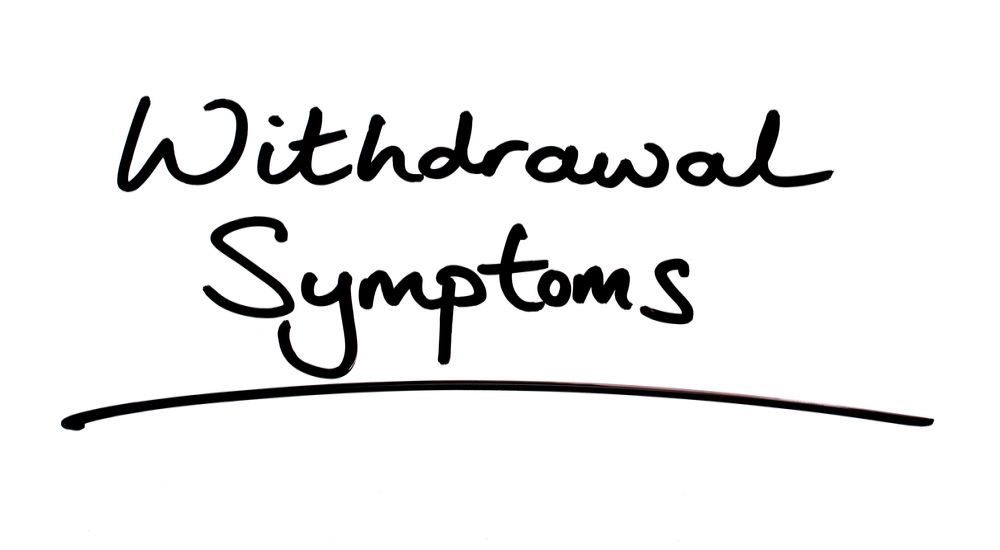It’s possible that you may be showing symptoms of alcohol withdrawal. When most people start showing these symptoms, they are not aware of it. Or maybe you’re looking to quit alcohol addiction. In cases like this, you may need information about what to expect during withdrawal.
Alcohol offers a level of excitement and relaxation. This is because it has a depressant effect that suppresses the transmission of impulses. At that moment, after each bottle, you start to “feel better”. Your body system begins to adapt to this feeling. It gets so used to alcohol that it becomes a dependence.
When you decide to quit drinking, your body system has to readjust to the new norm. These adjustments are the symptoms of alcohol withdrawal. They can put a strain on you emotionally and physically. You see, alcohol withdrawal symptoms range from headaches to seizures.
Most people, because of these adjustments, become hesitant to quit drinking. So, they keep drinking to avoid these new adjustments. These new adjustments are what you know as alcohol withdrawal symptoms. In this article, we will discuss what to expect from alcohol withdrawal. Also, we will provide a roadmap for how to manage alcohol withdrawal symptoms.
What Is Alcohol Withdrawal?
Alcohol withdrawal is the term that describes the symptoms that occur after a sudden change in your alcohol drinking routine. When you decide to completely stop or reduce the amount of alcohol you normally drink, you begin to experience some reactions. These reactions are the symptoms.
You should know that the possibility of experiencing alcohol withdrawal symptoms increases with the intensity of your drinking habit. If you have been abusing alcohol for many years, it is likely you’ll have more intense alcohol withdrawal symptoms.
Furthermore, alcohol withdrawal symptoms can be serious or mild depending on when you had your last drink. In a nutshell, the symptoms may get worse before they get better. Let’s take a quick look at the causes of alcohol withdrawal symptoms.
Causes of Alcohol Withdrawal
Alcohol has a depressive effect on your body system. What it does is to shut down some brain functions such as the secretion of neurotransmitters. This depressive effect from alcohol alters the transmission of nerve impulses to the brain.
The alcohol you drink has a tranquillizing effect on your brain. This is the reason you experience initial feelings of relaxation, sociability and happiness after drinking.
Furthermore, a prolonged drinking habit causes your brain to adapt to the depressing effects of alcohol. This leads your body system to develop alcohol dependence. When this happens, it is likely you’ll need alcohol addiction treatment to get rid of the habit. Although, habit is putting it lightly. If you’re at this stage, you’re suffering from alcohol addiction.
When you decide to quit drinking, there is a commensurate shortage in your body’s supply of alcohol. Your body which is now dependent on alcohol is not getting it anymore. It has to readjust to the new changes where there are no depressants. This unique situation is the cause of alcohol withdrawal.
Symptoms Of Alcohol Withdrawal

In a few short hours after your last drink, you will begin to experience some symptoms of alcohol withdrawal. Here, we discuss both mild and serious alcohol withdrawal symptoms to expect.
Mild alcohol withdrawal symptoms
Mild symptoms occur at least 2 hours after you have had your last drink. They include:
- Shaky hands
- Anxiety
- Insomnia
- Headache
- Vomiting
- Sweating.
Severe Symptoms
The severe symptoms of alcohol withdrawal occur at least 12 hours to a few days after your last drink. They range from hallucinations to seizures.
The severe symptoms differ from Delirium Tremens (DT2) as some people prefer to call it. This starts 48 to 72 hours after your last drink and includes symptoms like delusions and vivid hallucinations. Only a small percentage of people with alcohol withdrawal symptoms experience them. There may also be symptoms like:
- Confusion
- Fever
- High blood pressure
- Racing heart.
For some people, the thought of experiencing uncomfortable alcohol withdrawal symptoms makes them hesitant to quit drinking. However scary these symptoms can be, using alcohol addiction treatment services is recommended. They can help you manage alcohol withdrawal in a safe environment.
Alcohol withdrawal shouldn’t stop you from getting the treatment you need. In the next section, we’ll show you how to increase the chances of a safe, successful withdrawal.
Related article: Alcohol Addiction: How to Know You Need Help
How to Manage Alcohol Withdrawal: Possible Treatment and Tips
The goal of alcohol addiction treatment is to help you comfortably manage your symptoms. Although, treatment for alcohol withdrawal is dependent on how severe your symptoms are. For some, treatment can be in their homes. For others, they need to be under supervision in a rehab centre to avoid complications like seizures.
During the withdrawal period, symptoms can shift violently and quickly from minor to very extreme ones in a short time. We often advise that you inform someone close to you when you decide to quit drinking. This way, they can contact the appropriate quarters just in case you start showing some very extreme symptoms.
There are lots of alcohol addiction treatments that center on helping alcohol addicts overcome drinking habits. Also, there are rehabilitation facilities that focus on helping addicts with alcohol detox.
During the rehabilitation process, the treatment you will undergo will be aimed at reducing the most painful withdrawal symptoms. After the withdrawal stage, there is a need for programs and treatment therapies. These therapies provide you with the resources and tools to prevent a relapse. Alcohol addiction treatment programs may include the following.
Inpatient treatment

This is the most intensive of all alcohol addiction treatment options in Toronto. With in-patient rehabilitation, there is the safe and proper supervision of patients battling with addiction.
This treatment program may take up to 90 days. Furthermore, for most inpatient addiction treatment services in Toronto, you’ll have to live in designated facilities for the duration of the program.
Outpatient treatment
This is for patients with mild alcohol abuse symptoms. With this treatment, patients can carry out their daily activities while they are under treatment.
Medication therapy
Certain medication from a medical practitioner can help to ease the pain and discomfort that come with alcohol withdrawal symptoms. These drugs treat alcohol withdrawal so effectively that you can focus on other parts of your recovery.
Support groups
Even after rehabilitation, alcohol addiction recovery is a never-ending journey. There are support groups where you can discuss challenges and treatment goals with health care professionals. These support groups are also a platform where you can connect with other people getting alcohol addiction treatment.
To Wrap It Up
Here in this article, we discuss symptoms of alcohol withdrawal. The symptoms will include shaky hands, headache, sweating. In severe cases, you may experience more severe ones like seizures and hallucinations.
Furthermore, we discuss how to manage alcohol withdrawal. Remember, with the input of professional alcohol addiction treatment, alcohol withdrawal can be smoother. Here at Addiction Rehab, our experts have access to the latest medical equipment. More importantly, they have the experience to help you manage alcohol detox smoothly.
Related article: Alcohol Dependency and Questions to Ask If You’re Becoming Addicted to it








